 Practice Test
Training
Regulations
Security FAQs
Member Support
Sign In
Join
Practice Test
Training
Regulations
Security FAQs
Member Support
Sign In
Join
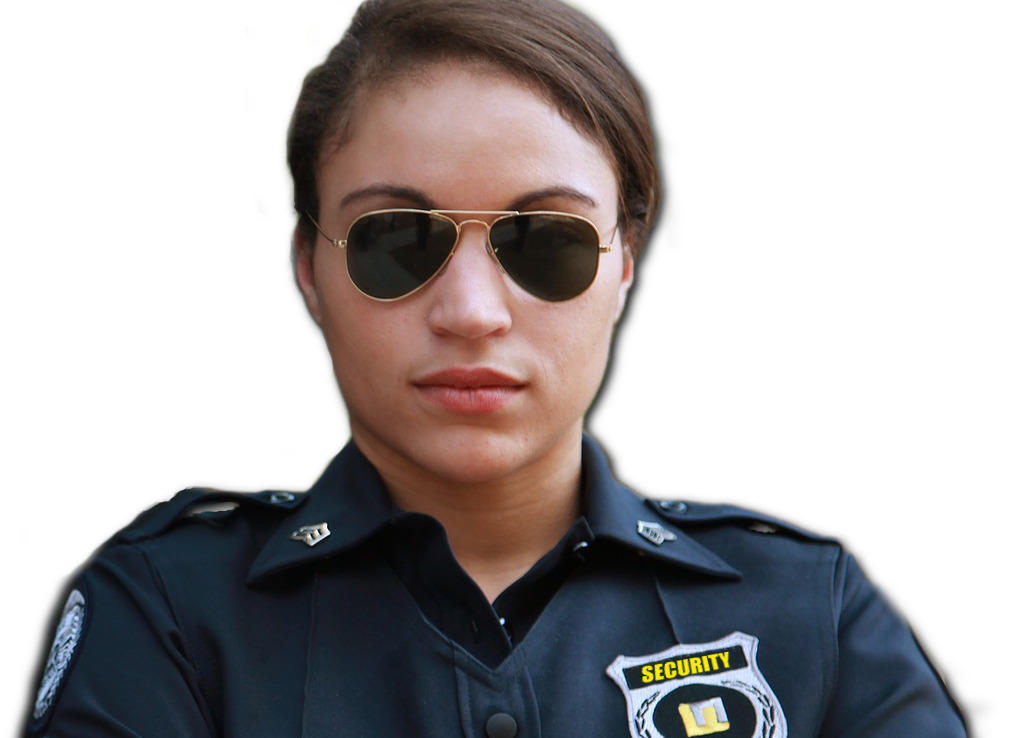
LAST EDIT April 28, 2023
Question: Which Security Shift Should I Choose?
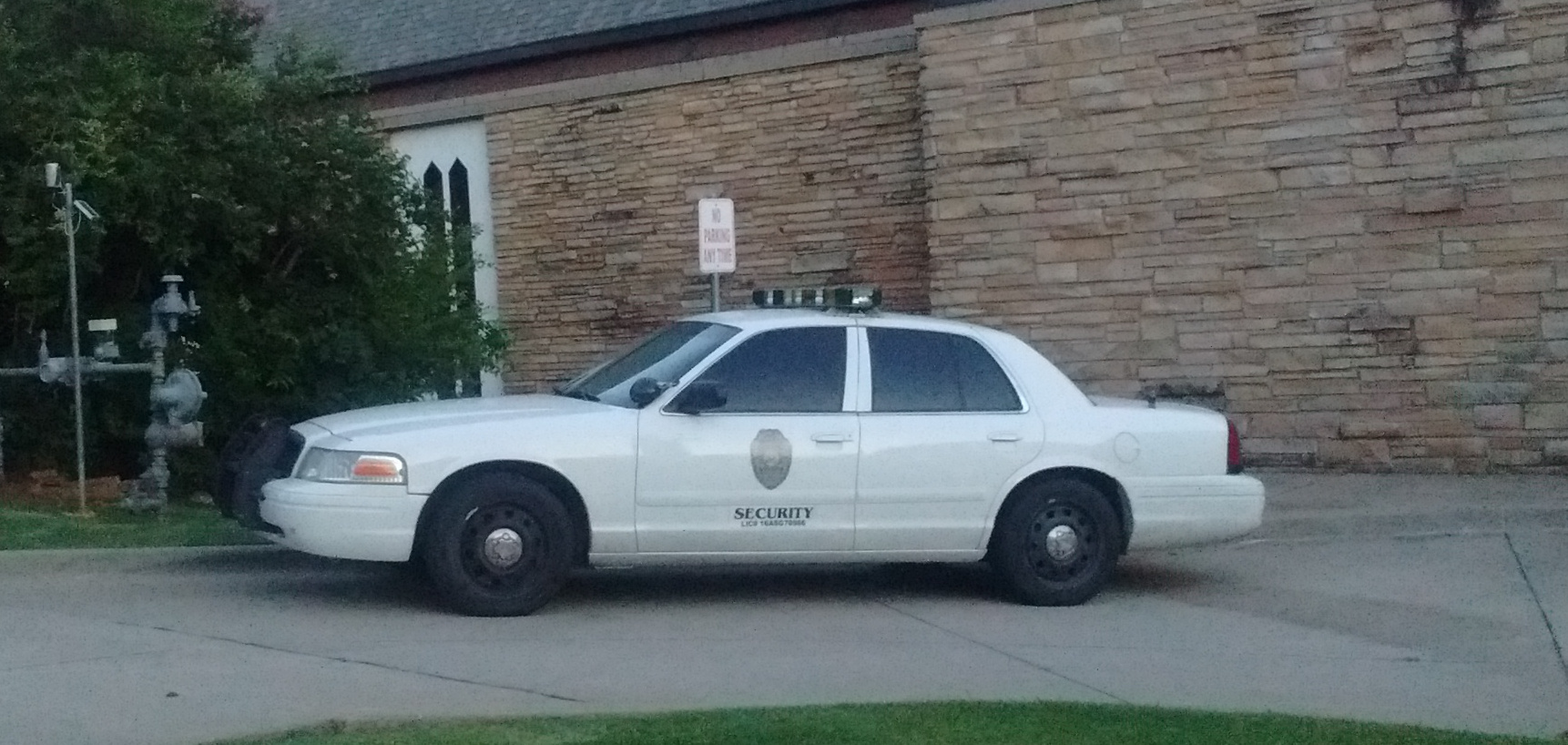
Listen to Content From This Article.
So, your security supervisor is offering you a choice of shifts. You can work days, swing shifts, or overnight. Which will you choose?
Depending on your specific circumstances, and all things being equal, the answer is clear.
You should pick the overnight shift. Here's why!
The Pay An obvious benefit: there might be a pay differential for those who work at night. Better pay for the challenge of staying up all night and disrupting your sleep schedule.
But honestly, it should be the other way around. There should be hazard pay for dealing with all the daytime normies who demand the security guard's attention. Across the security sector, if you're looking for a job with minimal stress, that feels like it's not even a job, seek night shifts on easy assignments like corporate office towers, warehouses, closed retail, and manufacturing. It hardly feels like work at all.
On many of these shifts, you will have little to no human contact, which is a major benefit of working these shifts. Even at intense sites where you deal with night people, such as patrol routes, hotels, apartments, or entertainment venues, most activity and human contact will end at some point during your shift, giving you plenty of stress-free time to yourself.
By the way, keep in mind that some of those reading this article will go on to work in corrections in the future. The same logic applies to corrections as well. Opt for night shifts where you can earn a pay differential, and as a bonus, most offenders are locked down and sleeping. This provides about eight hours of mostly stress-free work, and it's much less demanding than the day shift, where you might be personally responsible for up to 120 or more offenders (depending on staffing levels).
If you've never worked the overnight shift, you've missed out on an amazing ambiance.
My personal examples include:
1. The old mall, where I was the only person inside the main mall structure, with the sound system playing throughout. I had the keys to nearly everything and could go almost anywhere in the mall. It felt like being the invisible man or the last person on earth in a life-after-people scenario. Either way, it's an incredible ambiance.
2. The many nights driving the empty streets at night in my patrol car, unhindered by other vehicles. It's nighttime, no one is out, and I am The Guardian, protecting my client's property while they sleep. It's a big deal and builds a lot of confidence. When you successfully deter something like a break-in or vandalism, it's an amazing feeling.
3. Long, quiet nights spent in the basement security office of a bank, where between random foot patrols, I figured out how to earn my college degree without going into student loan debt. Hint: find one of the few accredited schools that don't limit the number of credits you can test out of, and then study for those tests each night on shift.
4. A snowy night with the opportunity to practice my extreme weather driving skills in the deserted, snow-filled parking lot with the security car. I hoped the new snow would cover up the donut tracks before the day shift arrived the next morning.
5. The overnight ambiance of a towering corporate office tower. As the security officer, I had keys with access to almost everything. All the once-bustling office spaces were now eerily quiet. The sounds of clacking keyboards and ringing phones replaced with perhaps the occasional hum of a computer left on standby or a refrigerator from one of the break rooms. From darkened offices on the top floors with massive windows, I looked out over the sleeping city, and if I wanted an even better view, I had access to the roof.
Then, if possible, provided the day shift arrives on time, the mission commences: get home by sunup just as the normies are coming out to kill the ambiance.
The overnight shift is the shift to get things done – things that are not part of your security job. Far from being prohibited, this is sometimes even encouraged by your supervisor.
There are a wide range of security assignments where it is acceptable to do things that have nothing to do with your security job.
However, even when it is acceptable to read, study, or do other personal things that are not part of the official assignment, it's likely more difficult to do those things on the day shift.
That's because perception matters. For example, consider the case of an officer who mans a security desk in the foyer of an office building. During the day, when employees are badging in and out, and the occasional member of the public or a vendor needs assistance, even if it's perfectly acceptable to work on personal projects, the officer risks establishing a bad impression when the visitor or employee notices that he's listening to a podcast, studying from a school textbook, scrolling on his phone, or even doing security research online. But, at night, once the office is locked and secured, the officer at that same desk might even be expected to engage in these activities just to ensure he stays awake. His supervisor will encourage him to keep his mind active and to bring personal effects to work for this purpose, "Just, by all means, do your hourly foot patrols and don't fall asleep. That's all I ask."
This opens up a world of possibilities to the ambitious officer who is working his way through school – without taking on the destructive student loan debt that everyone should do their best to avoid – and who needs the study time, or maybe wants to learn everything about the security industry for a career as a security professional, such as a supervisor or consultant. See the free resource at the end of this video for an example of this. As a bonus, on the night shift, he's not likely to be interrupted nearly as frequently as on the day shift. The few interruptions that do occur, random or set foot patrols, maintenance checks, logging the janitorial staff in and out, etc., provide a healthy break from his personal activities.
Of course, those who are familiar with the industry will know that many officers who find themselves in this amazing circumstance – being paid to do their own personal work while on the job – waste this time on their phone or even bring in gaming systems, etc. These unwise officers risk being trapped in low-paying security posts for the rest of their lives. This is a mistake; one that you should avoid.
So here's a valid line of pushback against my argument: What about experience? To become a security professional, shouldn't one work the shifts where there's more actual real security work to do and there's more opportunity to gain experience?
I think this valid concern points to something that I can't emphasize enough: As a security officer, you must have a goal. You must always work towards that goal. So, if your goal is to become a security professional, perhaps to branch out on your own and start your own company or consultancy, then you will want to gain hands-on experience dealing with people and using your skills to ensure a secure environment.
This doesn't mean you need to leave the night shift, though.
There are plenty of night shifts where you can get a lot of good experience. These are the active shifts, such as the nighttime patrol route, where you are likely to gain considerable experience because you are dealing with the night people. Early in the evening, these are the drunks with whom you deploy your tactical communication skills to get them in for the night without incident.
Later in the night, as the streets clear and the ambiance really sets in, you are keeping your eyes out for those who are seeking the big score. They have strategically waited for this time of night in order to do things that they think will go unnoticed because no one is out—except for you. Work one of these shifts long enough, and you will probably have the opportunity to expose and stop some pretty intense stuff. This is good for your resume and really builds your confidence and experience.
So, if you are in the phase of studying and learning from research, then you will want a safe, low-to-no activity site; but if you are attempting to get on-the-ground meaningful experience, you will need a more active assignment, such as a mobile patrol. I guess what I am saying is: don't feel that you have to give up all of the benefits of night shift work just to get experience; in fact, when the time is right for you to get some real security experience, you may benefit from the type of experience that occurs on the night shift when the normies are already back home and the night people are out and about.
Before we go, here's an important tip: Do your best to keep a consistent sleeping schedule and stick to it. This is what makes all of this work. If you are unable to establish this consistency and can't get regular, consistent sleep according to an established set of hours, then consider staying on days.
Here's a helpful free resource. It's the free 50-page PDF from The Security Officer Network entitled "From Security Guard to Security Expert," and it features an example of a security officer leveraging his work on the night shift into his own security enterprise. This guide is about six years old, so it's due for an update, but much of the information remains relevant, and it will inspire you and get your mind racing with just some of the possibilities of the great benefit that is the security post night shift: getting paid to chill out and build for your future.
And, as always, if you've yet to get your Security Officer Network ID, then consider joining us at TheSecurityOfficerNetwork.com and start building your professional portfolio today.
Are you ready to start thinking about starting your own security company? Check out this 140 page ebook from The Security Officer Network entitled "How to Start A Security Guard Company". Get your PDF copy while it is still free! Or, order the paperback from Amazon.
How Much Does it Cost to Start a Security Guard Company - The initial investment that should be set aside before start a private security agency. Click to Read
How Much Can a New Security Agency Charge? - The new security agency's pricing strategy. Click to Read
What are the Components of the Security Guard Company Business Plan - The necessary elements of the Security Guard Company's business plan. Click to Read
How to Lower the Cost of the Securty Guard Company's Insurance Premiums - Methods for cutting the cost of insurance and undercutting the price model of the big security companies. Click to Read
How Much Should a Company Charge for Security Patrol? - Methods for charging for patrol route services. Click to Read
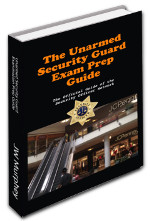
SecurityOfficerHQ.com is the exclusive provider of this free 57 page PDF guide. It features just about everything you need to know before taking the exam and includes The Professional Security Officer eCourse. You may get your copy for free right now only at SecurityOfficerHQ.com! Submit your name and email to receive your copy via email or click here to learn more about this guide.
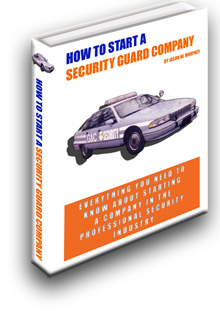
SecurityOfficerHQ.com is the exclusive provider of this free 140 page PDF ebook. Less-comprehensive versions sell for $24, but, for the time being, you may get your copy for free right now only at SecurityOfficerHQ.com! Submit your name and email to receive your copy via email or click here to learn more about the book.
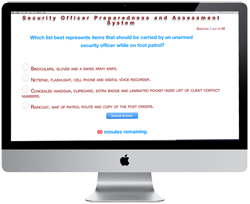
The forty question, free practice exam will test your unarmed security knowledge. It's the perfect test prep for those who must sit an exam before getting licensing.
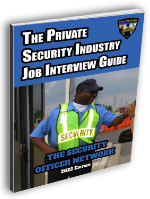
This free job interview guide is the security officer's must-have resource. Get yours here.
© 2012 - 2026 The Security Officer Network
A Product of the 1918 Media Limited Liability Company
Addr: Thirty North Gould Street 2288
Sheridan, Wyoming 82801
Phone: (307) 461-6079
Red Hirundo Rustica Custom CMS and Testing Engine
Disclosures | Privacy | 307.461.6079